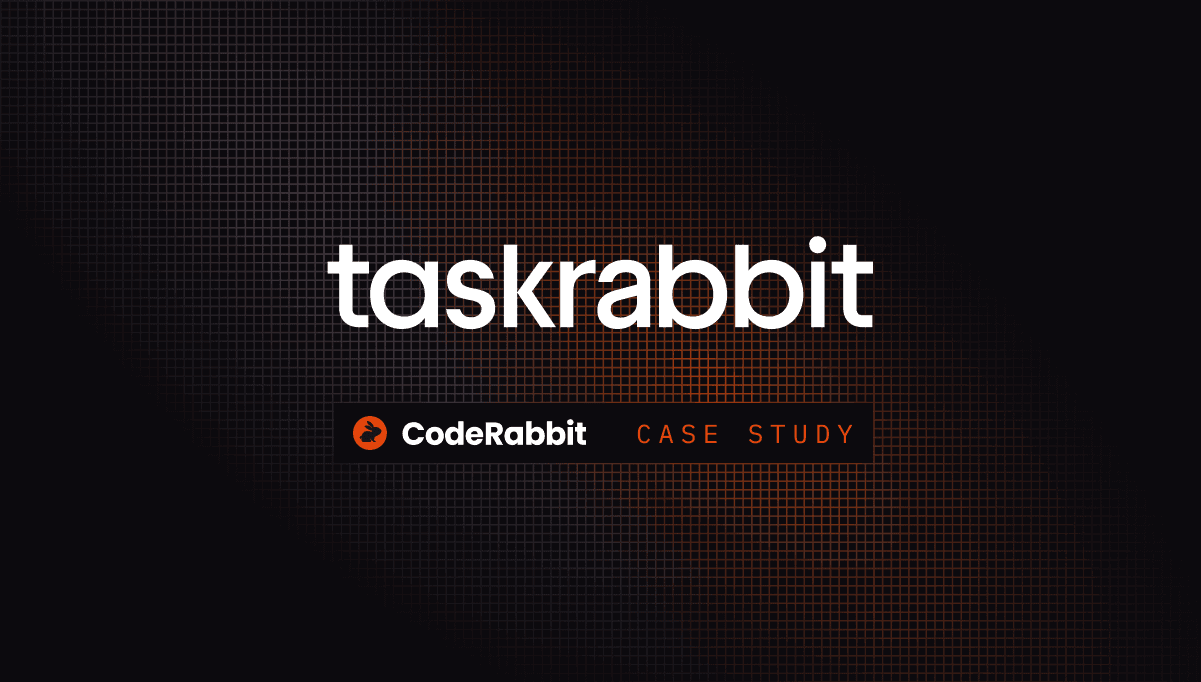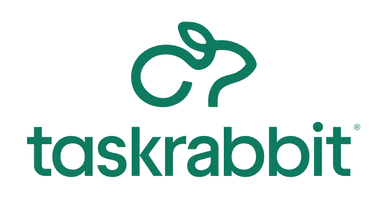


Taskrabbit cut merge time by 25% before adopting coding agents

25% Faster Merge Times
Instant, 24/7 AI Code Reviews
Consistent, Learning-Based Reviews
Improved developer productivity
Taskrabbit has experienced significant growth since its launch over a decade ago. Because of that growth, the popular platform that connects people with skilled local “Taskers” has a large engineering team and is always seeking innovative ways to streamline its processes and make its developers’ lives better and more productive.
Kiran Kanagasekar, a Senior Engineering Manager at Taskrabbit, leads multiple teams, including the Developer Excellence team, which aims to enhance developer productivity across the organization. While many companies implemented AI coding agents to enhance productivity, Kiran zeroed in on code reviews as the critical area needing improvement, as they were an existing bottleneck that was affecting their development cycle time.
He believed that jumping straight to implementing AI coding assistants would only exacerbate the existing review bottleneck that saw consistently slow merge times – and not make the company any more productive. So, Kiran focused on leveraging AI for code reviews. This move led Taskrabbit to CodeRabbit, an AI tool that promised to fix their code review problem.
Challenge: Slow time-to-merge and inconsistent code standards
Before using CodeRabbit, Taskrabbit faced common code review challenges that hurt their merge time and frustrated developers. These issues worsened due to their global engineering team and massive, monolithic codebase.
- Slow review cycle due to global teams
Taskrabbit’s engineering team is spread across the globe, with teams in the US and Poland. This global setup meant that if you created a pull request late in your time zone, you’d be waiting for feedback until the next business day in a different time zone. Kiran put it this way:
If I create a PR after 2 o’clock in the Pacific time zone, that’s it. I don’t receive any reviews from Eastern Time or European people. I have to wait for the whole day, and then they’ll come back and provide a comment.
This built-in delay, resulting from the company’s geographic spread, directly led to longer development cycle times.
- Inconsistent coding standards across a growing codebase
Maintaining consistent coding standards across a decade-old, evolving codebase was a persistent struggle for Taskrabbit. New senior engineers, despite their general industry knowledge, often lacked immediate familiarity with Taskrabbit's unique patterns and anti-patterns. This disparity led to inconsistencies in code reviews and approvals. While Taskrabbit had attempted to address this through linters and automation using the Danger framework, they recognized the need for an innovative, learning-based code review tool that could consistently enforce best practices.
- Potential for delayed identification of vulnerabilities and optimizations
While Taskrabbit didn’t ship many bugs, the manual review process occasionally overlooked vulnerabilities or opportunities for code optimizations. Leveraging CodeRabbit as a first-pass reviewer allowed them to streamline the review process for senior reviewers, who could then focus on more substantive issues.
- AI coding tools would have worsened the merge time bottleneck
Kiran understood that adding AI coding assistants would create more PRs and worsen the review process.
Writing code faster was never the issue; the bottleneck was always code review,
- Kiran Kanagasekar, Senior Engineering Manager
Kiran’s foresight prevented Taskrabbit from simply exacerbating the bottleneck and frustrating the team.
Why Taskrabbit loves CodeRabbit
Taskrabbit’s decision to implement CodeRabbit stemmed from a deliberate strategy to address its most significant pain point first: code reviews. Kiran was convinced that an AI code review tool would be more helpful than an AI coding assistant at that stage, and he was right.
It leveraged AI to solve their actual problem: Code reviews
Kiran watched AI coding tools popping up everywhere, but saw a problem inherent in adopting them. While these tools promised to generate code faster, they did nothing to alleviate existing code review logjams, such as those Taskrabbit was experiencing, even as they contributed to worsening those bottlenecks.
I feel like CodeRabbit is solving the code review problem, and that was attractive, I was thinking, why not solve that problem before we use a coding tool?
- Kiran Kanagasekar, Senior Engineering Manager
That thinking ensured that when Taskrabbit eventually tried AI coding tools, they’d already have a solid review process and faster software development cycle time to handle the increased PR volume.
Immediate feedback for distributed teams
CodeRabbit gave instant, 24/7 feedback on PRs, effectively eliminating the time zone problem. “CodeRabbit gives me initial feedback that I can modify,” Kiran said. This meant that by the time human reviewers arrived, many basic suggestions and standard issues had already been addressed, thereby dramatically reducing the time required for human reviews.
Enhancing consistency and learning across the team
Kiran appreciated CodeRabbit’s ability to learn and give consistent feedback. He noted a case where CodeRabbit learned a specific Taskrabbit standard, even when it wasn’t common industry practice.
CodeRabbit is constantly learning, which I like,
- Kiran Kanagasekar, Senior Engineering Manager
CodeRabbit’s ability to learn meant the tool adapted to Taskrabbit’s unique codebase and internal guidelines, thereby maintaining consistency across their entire team of over 100 engineers.
Valuable features for improved comprehension and efficiency
Taskrabbit engineers loved CodeRabbit’s sequence diagrams and summary features. The sequence diagram gave a quick, high-level understanding of a PR’s context, so reviewers didn't need to dig into JIRA tickets. The summary feature also helped developers who were unfamiliar with a specific ticket. CodeRabbit’s IDE integration was also something that Taskrabbit appreciates – since it gives engineers immediate feedback before even creating a PR.
Results: Faster development cycle time, improved DevEx

With CodeRabbit in use across most repositories, including their central Ruby monolith, Taskrabbit has seen real improvements in its workflow.
Over 25% reduction in time to merge: Taskrabbit’s development cycle time for PRs, including the outliers that typically take longer, has dropped dramatically. Kiran reported a reduction from an average of 10 days to 7 days, representing an improvement of over 25%. The faster review process and merge time reduction mean Taskrabbit is shipping the code faster to the market, allowing their teams to deliver new features and serve customers more efficiently. With over 300 PRs pushed through CodeRabbit each week, the impact is enormous.
Improved developer experience and satisfaction: Immediate feedback from CodeRabbit has significantly increased developer satisfaction. Engineers no longer have to wait for reviews, giving them a sense of continuous progress. Kiran compared it to having “a pair of programmers sitting with you giving you comments on recommendations. ”
Foundation for future AI tool adoption: By resolving their code review bottleneck, Taskrabbit established a solid foundation for implementing other AI tools without compromising shipping velocity or developer experience. Kiran's strategic decision means they can now confidently explore AI coding assistants, knowing their review process can handle the increased PR volume and complexity that such tools might create.
Enhanced code consistency and early bug detection: Taskrabbit developers’ experience with CodeRabbit shows that CodeRabbit identifies potential vulnerabilities and helps enforce coding standards. The tool's ability to suggest optimizations and flag potential issues before human review has added an extra layer of quality assurance for their team. Kiran recalled a specific instance during the Proof of Concept with CodeRabbit, where “CodeRabbit also offered valuable ideas for implementing functionality more efficiently. CodeRabbit suggested a way to optimize the code, and that was helpful to us.
CodeRabbit = Less review overhead, 25% reduction in merge time
Before CodeRabbit
- •Inconsistent coding standards across a massive, decade-old codebase
- •Missed opportunities to catch vulnerabilities or optimizations early
- •AI coding tools would have worsened the merge-time bottleneck
After CodeRabbit
Consistent, learning-based code reviews across teams
Early detection of vulnerabilities and optimization opportunities
24/7 instant feedback eliminated timezone delays
For Taskrabbit, adopting CodeRabbit was a strategic move that effectively tackled a critical bottleneck by leveraging AI. By prioritizing AI code reviews over AI coding assistants, they have successfully "slashed their time to merge by over 25%, made developers happier, and set themselves up for a more scalable and efficient future,” shared Kiran. Now that their code review bottleneck has been cleared, they’re also ready to consider implementing AI coding assistants, confident that they can handle the additional review work. Kiran believes that CodeRabbit also greatly enhances the developer experience.
If any company cares about productivity, I think this is the tool for them,” Kiran shared. People get fulfillment from completing their tasks. CodeRabbit delivers that boost by helping to move the PR process along. Every company could use a tool like this.

San Fransisco, United States
https://www.taskrabbit.com/Engineering team size
100 developers
Languages
Ruby, React, Javascript, TypeScript, React Native , SQL, Python , Node.js
Challenge
Code reviews were creating a bottleneck that hindered developer experience and productivity, resulting in painfully slow development cycle times.